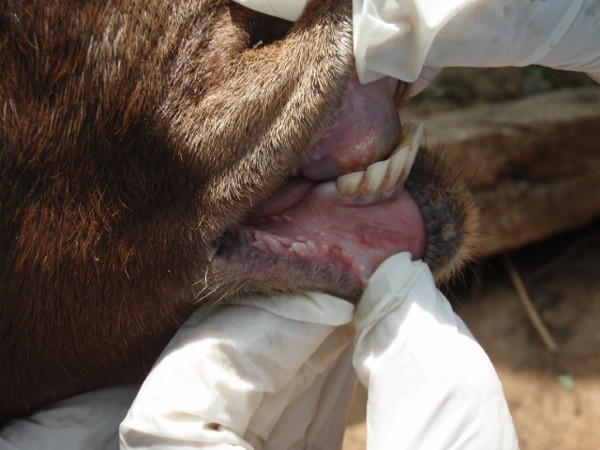

Foot & Mouth Disease is a highly contagious disease, it can spread very fast within and across herds or farms. It affects, pigs, cattle, sheep and goats. It is a viral disease that has no cure but one that can be prevented through vaccination.
FMD causes losses in production as it characteristically causes wounds/blisters on the skin above and between hooves and in the mouth.
Subsequently, the disease makes walking and chewing painful hence the animal doesn’t feed well and if being milked will have a marked reduction in milk yield. Worst still, FMD is a notifiable disease that comes with a quarantine imposition to stem its spread. This off course affects trade in livestock because all markets are normally closed in an area where the disease is reported.
The disease is spread through direct and indirect contact with secretions from infected animals which include milk and semen. The virus can also be spread mechanically through contaminated objects or aerosols or ingestion of contaminated feed. The virus can also enter the body through a broken skin/wound.
During outbreaks there are measures that a farmer can put in place to protect his stock from infection.
Fence your farm: A good farm should be fenced; this has the positive effect of limiting intruders into the farm. These include dogs, cats, birds, livestock and people who can easily spread the virus that causes FMD on their feet, clothes or body and will easily contaminate your farm and thus spread the disease. I don’t mean you fence the farm when you hear FMD is in the neighbourhood; a fence should be part of the farm design.
Control entry into your farm: A good farm design is crucial in disease prevention. Your dairy unit shouldn’t be the first thing a visitor encounters on entering your farm. It should be positioned in an area that is secure and whose access is not for everyone. While you may not prevent people from entering your farm, you can put in placebiosecurity measures. This will include a foot bath at the gate for vehicles and people entering your farm. Always keep a visitors’ book at the gate and ensure it has a column for the origin of the visitor; this will assist in telling whether they are from infected farms.
Isolate the sick: In the unfortunate circumstance that your animal gets infected, quickly isolate it from the herd to prevent the spread of the disease. Urgently call your vet to give symptomatic treatment as the disease has no cure but with good and timely management the animal can recover.
Vaccinate against FMD: There are very effective FMD vaccine already on the market. It is currently available in a purified oil based form, which protects against all the four strains of FMD virus. The vaccine confers immunity for up to year after vaccination
 Contact Jaguza Support
Contact Jaguza Support